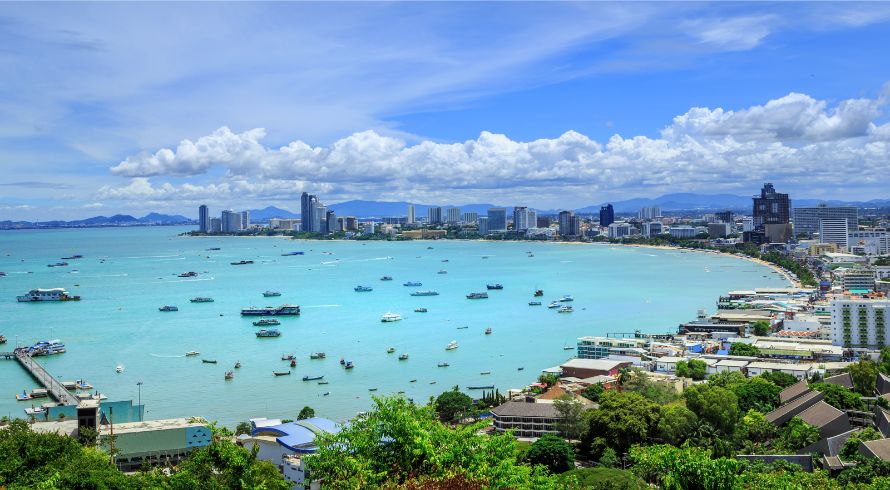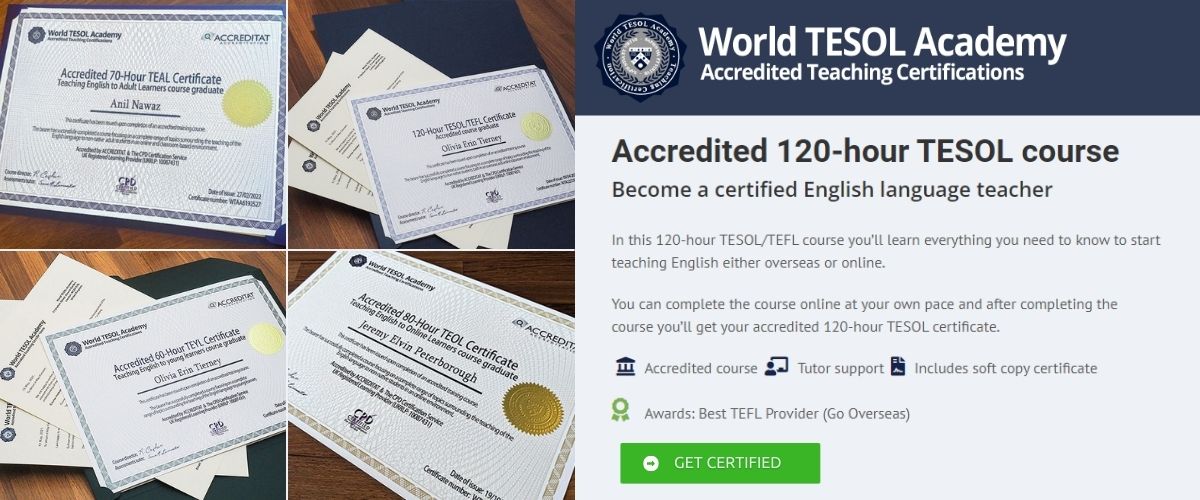
Top Cities for ESL Teaching in Thailand
Embarking on a new teaching adventure in Thailand offers you the opportunity to build your teaching career while experiencing an exciting mix of cultural heritage and diverse landscapes.
Thailand has long been a top teaching destination for ESL teachers thanks to the opportunity to combine professional growth with adventure. From the bustling urban life of Bangkok to the tranquil beaches of Phuket and the historic charm of Chiang Mai, Thailand caters to all types of lifestyles and teaching preferences.
Join us as we explore the most popular cities for ESL teaching in the Land of Smiles—Thailand.

Bangkok
Skyscrapers and temples
Bangkok — The Dynamic Metropolis
Bangkok, Thailand’s vibrant capital, is a city where tradition meets modern life. Renowned for its lively streets, historic temples, and flourishing ESL job market, Bangkok stands as a prime destination for ESL teachers seeking both career growth and big city life.
Extensive career opportunities
The demand for English teachers in Bangkok is growing at a steady pace. ESL teachers will find a wide range of teaching opportunities available at private language schools, public and international schools, as well as universities. This allows you to explore a various teaching environments, such as teaching young learners or adults seeking business English skills.
The city’s global business presence also creates opportunities for teaching business English in the corporate environment, which is in high demand. Additionally, many employers offer benefits like visa sponsorship and housing allowances, making it an attractive option for many teachers.
Urban exploration and culture
Bangkok’s popularity isn’t just driven by its teaching opportunities, but also the lifestyle. Bangkok offers an unrivaled urban experience. The city provides a great blend of historic charm mixed with modern luxury. From countless cultural sites such as the Grand Palace, Wat Arun, Wat Phra Kaew, to an endless array of shopping options, Bangkok offers a dynamic living experience that’s hard to match.
Beyond its historical and cultural sites, Bangkok is also famous for its culinary scene, which ranges from street food markets to high-end restaurants. The city’s efficient public transport system, including the BTS Skytrain and MRT, makes navigating this bustling metropolis relatively easy, allowing teachers to conveniently explore the city.

Chiang Mai
Royal Flora Ratchaphruek Park
Chiang Mai — The Cultural Haven
Chiang Mai provides a stark contrast to Bangkok, offering a calm and serene environment that is steeped in the local Lanna culture. It’s an ideal place for those who wish to escape the bustling pace of the capital while still having access to a robust job market for ESL teachers.
Diverse teaching environments
ESL teachers in Chiang Mai can find opportunities in private language institutes, public & private schools, as well as universities. The city’s educational institutions often look for teachers who can bring a creative approach to teaching, reflecting the city’s artistic heritage. Chiang Mai is also home to a significant number of NGOs, which sometimes seek English teachers for community development projects.
Laid-back lifestyle and rich history
Life in Chiang Mai moves at a more leisurely pace compared to Bangkok. The city is known for its beautiful temples, like Wat Phra Singh and Wat Chedi Luang. The cooler climate and proximity to nature make it perfect for outdoor activities such as trekking and exploring. The city’s old town is great for leisurely bike rides, and the nearby mountains offer beautiful hiking trails.

Phuket
Island tropical island getaway
Phuket — The Tropical Paradise
Phuket is Thailand’s largest island and a global tourist hotspot, making it an exciting place for ESL teachers who enjoy a dynamic, multicultural environment mixed with natural beauty.
Steady ESL market with a focus on tourism
Teaching opportunities in Phuket are plentiful, particularly in language schools and hospitality training centers. The island’s economy is heavily reliant on tourism, so there is a significant demand for teachers who can provide English education to staff in hotels, resorts, and tourist attractions. Teachers here often enjoy working in a less formal setting, where the classroom views might include sandy beaches and ocean waves.
Island life at its best
Phuket offers a lifestyle that balances work with leisure. Teachers can unwind on some of Thailand’s most famous beaches, like Patong and Kata Beach, or enjoy water sports such as diving and snorkeling. The island also has a vibrant nightlife and a growing arts scene, with galleries and theaters promoting both Thai and international works.

Pattaya
Vibrant coastal city
Pattaya — The Vibrant Coastal City
Pattaya is a lively coastal city known for its stunning beaches and entertainment options. It’s a popular destination for tourists and ESL teachers alike, offering a unique mix of urban and beach lifestyles.
Varied educational opportunities
Pattaya’s ESL job market is thriving due to its status as a major tourist destination. Teachers can find positions in language schools, private & public schools, international schools, and the hospitality industry. There is also a high demand for private tutoring for both children and adults, providing more flexibility in job choices.
Coastal urbanity
Pattaya has become famous for its beaches, island exploration, and vibrant nightlife, but it also offers plenty of cultural experiences such as the Sanctuary of Truth, which a large wooden temple that showcases traditional Thai craftsmanship. For those who prefer a quieter lifestyle, there are quieter neighborhoods and beaches like Jomtien that offer a more relaxed pace of life.

What do you need to start teaching in Thailand?
If you wish to launch a teaching career in Thailand, you’ll need to possess a few key qualifications. Without these qualifications, it will be difficult to obtain the necessary visa and work permits which will allow you to legally live and work in Thailand as an ESL teacher.
You should aim to obtain the following qualifications:
🎓 Bachelor’s degree: A degree from an accredited university is essential not only for visa purposes, but employers will also request to see it when you apply for teaching positions.
🧑🏫 TEFL/TESOL certification: To demonstrate that you possess sufficient qualifications to teach English effectively, you’ll need an accredited 120-hour TESOL/TEFL certificate.
🗣️ English proficiency: For non-native speakers, a high level of English proficiency is required, typically verified through standardized tests like IELTS or TOEFL. While there isn’t an official score required by the Thai government, employers will generally wish to see an IELTS score of 6.5 or above, or the equivalent score on another acceptable test.
👮 Background check: A police clearance certificate from your home country or from any country where you have lived for a significant period is necessary to verify your criminal record status.
🏥Health certificate: A general health check to ensure you do not have any prohibitive diseases may be required as part of the work permit process.
Once you’ve obtained these qualifications, you will be eligible to apply for a non-immigrant B visa and work permit. Obtaining the visa is a major step as it allows you to enter Thailand for the purpose of applying for the work permit. After arriving in Thailand, you will be required to convert the visa into a work permit.
The application process for the visa can vary somewhat. Some teachers choose to apply for the visa before arriving in Thailand, while some apply for it after arriving. Whichever you choose, you are going to have to obtain a job offer from an employer, which will then be used for applying for the visa. Fortunately, your employer will typically assist you in obtaining the visa and work permit.
Begin your preparations early
The preparation process for obtaining your visa can be quite lengthy, so it’s recommended to begin well in advance of your departure to ensure that it is smooth and stress-free.
One of the major time-consuming processes you’ll have to complete is the embassy attestation process. As Thailand is not part of the Hague Apostille Convention, your visa & work permit application documents, such as degrees, certificates, and police clearances, need to undergo embassy attestation at the Thai embassy in the country they were issued.
Properly attested documents are essential for securing your work visa and permit in Thailand.
Starting your journey
Embarking on your ESL teaching journey in Thailand offers a unique blend of professional opportunities and cultural experiences. From the dynamic life in Bangkok to the serene settings of Phuket and Chiang Mai, each city has something special to offer ESL teachers.
Equipped with the necessary qualifications, and a willingness to embrace Thai culture, you’ll be well-prepared for launching a teaching career in the land of smiles.
Are you ready to start your next teaching adventure in Thailand?
Getting your TESOL/TEFL certificate:
To teach English in Thailand, you’ll need to possess an accredited 120-hour TESOL/TEFL certificate.
Our dual-accredited TESOL/TEFL certificate can be used for the embassy-attestation process, which is a requirement for the work permit and visa process for teaching in Thailand.
If you haven’t obtained your certificate yet, you can enroll in the course here:
.
If you’d like to learn more about teaching English in Thailand, feel free to explore our ESL teaching blog for useful tips and stories from our graduates.
🧑🏫 Teacher stories from Thailand:
If you have any questions about our courses and certificates, feel free to contact us via the website live chat or via our contact form.





Leave A Comment